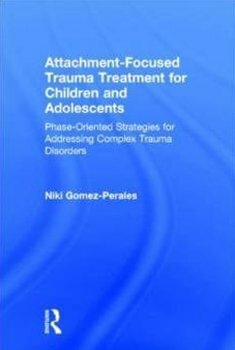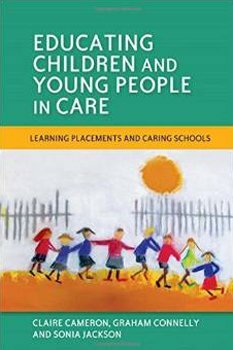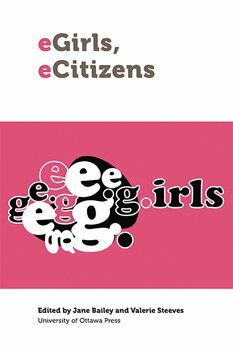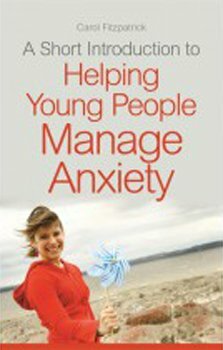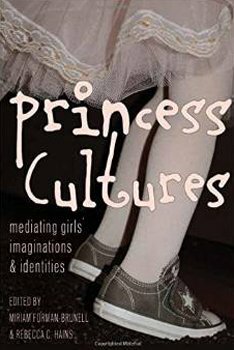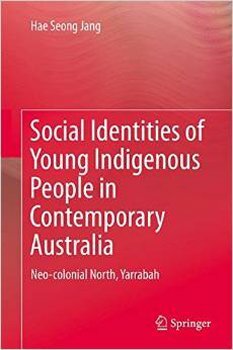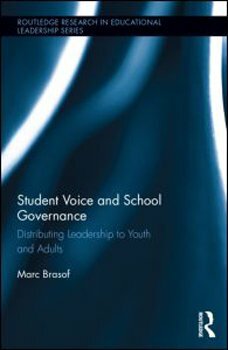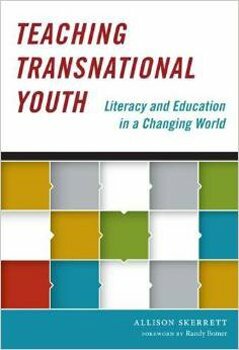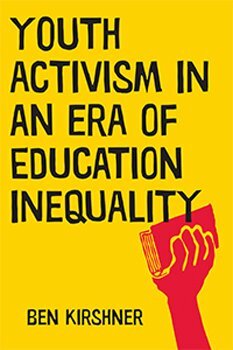

-
Contact us
Contact us
Australian Clearinghouse for Youth StudiesUniversity of Tasmania,
P O Box 5078, UTAS LPO,
Sandy Bay, 7005,
Tasmania, AustraliaTel: (03) 6226 2591Fax: (03) 6226 2578Email: [email protected] -
Search ACYS
- Events
According to a new report launched by the Youth Coalition of the ACT, young people in the capital are ...
POLICY
A recent report has called for homelessness support for young people to be better integrated into the services accessed ...
PRACTICE
The National Disability Coordination Officer (NDCO) program has produced a new resource to help young people with Autism Spectrum ...
Welcome to the June 2023 issue of YFX – our final issue
It’s hard to believe that this is the final issue of Youth Field Xpress following the Australian Government’s withdrawal of funding for ACYS in May. For nearly 20 years it has been one of the leading youth sector newsletters in Australia. It was founded by Anne Hugo in 1997 as one of Australia’s first online newsletters, and has become a trusted voice providing legions of youth workers, researchers and youth sector professionals with the latest news and trends in their field in order to help them in their work with young people.
Early issues of YFX focused on many of the same issues we are facing today, but the world of work and the transition to work has become much harder for young people in the past 20 years. Currently the youth sector is waiting to see how the Government’s new Youth Employment Strategy, which replaces previous schemes and is designed to get young jobseekers into meaningful employment, will pan out. In this issue of YFX we have an example of a Melbourne entrepreneur who has taken the issue into his own hands and has set up an organisation called Fingerprint Me, which works locally to assist young people struggling to get into a job (see ‘Transition and work’). Such locally based schemes that are tailored to local conditions have huge potential. The youth employment area is on the cusp of big changes – with Spanish youth advocates calling for the creation of a UN Youth Employment Decade (see ‘Transition and work’) – and we are sorry that we won’t be here to cover them for you. The ACOSS and Brotherhood of St Laurence websites are both great ways to stay on top of what’s happening in the youth employment space here in Australia.
Once again, we have a wide selection of stories for you this month that prove how much energy, enthusiasm and raw talent exists in the youth sector. Researchers are constantly investigating new and neglected youth issues. This month we feature a report about the difficulties faced by young people who have left care situations who want to go on to university study (see ‘Transition and work’) and another that looks at education barriers for young people with ongoing health problems ( see ‘Wellbeing’). With recent advances in medical care, many more young people are surviving debilitating diseases and want to focus on achieving a good education.
Kate Gross has written an illuminating piece about ACYS and its achievements for The Sector this month. Please be sure to read this and hear what some of our past and present staff have to say about their invaluable work with us.
Huge thanks go to everyone who has contributed to this newsletter over the years – including of course its founder Anne Hugo. Kate Gross has been instrumental in its creation for many years, and more recently Sue Dilley has contributed great stories. And thanks also to those at ACYS who have been the technical and design wizards behind YFX including Ann Davie and Peta Owen. Without them it would never have reached you, the readers.
As Ann Davie says in her contribution to The Sector this month, it is the sense of community in the youth sector that we feel will be lost with the demise of ACYS and its newsletter YFX. Working at ACYS I have felt strongly that a sense of connectedness was needed by the youth sector, and we feel that YFX contributed to that. We hope that there is someone out there who might take up the baton in the future.
It has been a huge pleasure and a privilege working on this newsletter; I knew little about the sector when I began at ACYS in 2009 but I have been blown away by the dedication and enthusiasm of so many in the sector and the wide range of disciplines it encompasses. Their comments and compliments over the years have been a welcome boost for us here in the ACYS offices, but particularly so in the past few weeks as we have prepared to wind down ACYS operations. Some of the YFX highlights of the past five and half years have been seeing the vast range of youth-led initiatives and programs that have eased the path for young people, and the sense of openness that now exists for young people to talk about and seek help for all sorts of problems and issues that were previously ignored or had stigma attached to them, particularly mental health and sexuality issues. YFX’s 18th birthday in late 2013 was another highlight.
Just a note on our archive of resources and the books published by ACYS: YFX subscribers will be sent an email towards the end of July about the arrangements that have been finalised for ways to access the free archive of ACYS youth resources, including past issues of YSA and YFX, and how to purchase ACYS books.
Once again, happy reading and work well with your young people.
Caroline Mordaunt, YFX Editor
From Jen Couch, the National Director of ACYS
This is my first and last contribution to YFX in my role as National Director of ACYS and I can’t help but feel a little nostalgic. During my 30 years in the youth sector and academia, ACYS has consistently been part of my working life. As a young, direct service youth worker I accessed material to embed good practice into my work, information to build policies within services I worked in, accessed research to inform my own writing and as a new academic the ACYS journal Youth Studies Australia provided me with my first publishing opportunities.
By my unofficial count, I have read all 226 issues of YFX and nearly every edition of YSA. I can’t count the amount of times I have used material from Face the Facts in my work and have referred my youth work students to AYCS to access material on anything to do with young people and the youth sector in Australia.
My brief time at ACYS has given me the chance to contribute to the very important work ACYS has consistently done in sharing good practice across the sector, bringing together youth workers, researchers, young people and policymakers who may not otherwise have known about each other. This is what has made ACYS so significant: that in no matter what field I have found myself in, in terms of working with, for and on behalf of young people, ACYS was consistently there to provide reliable, robust and useful information about young people to practitioners and researchers. The impact and loss of ACYS is profound and evidenced by the many emails and letters of support we have received since the closure was announced.
There is also so much more to ACYS then I imagined. I am aware of how lucky I have been to work with the current staff, some of whom have been here for years. All are smart, talented and visionary people, who have been passionately committed to the youth sector. I would like to express my appreciation to them all on the extraordinary contribution they have made to young people and the youth sector and for helping to create a connected Australian youth sector, with breadth and depth of thinking and a commitment to good practice.
Jen Couch
National Director of ACYS
From Lindsey Moffatt, Manager of ACYS
I began managing ACYS in August 2014: a time of service transition for the clearinghouse and its staff. For many years ACYS had mainly provided the youth sector with analysis of good practice in working with young people through its journal Youth Studies Australia. But, in line with contemporary approaches to informing policy and practice across many community service areas, from February 2013 the Australian Government had required ACYS to offer more targeted analysis on emerging issues for young people for the youth sector: briefings, case studies, podcasts and webinars, which are collectively known as ACYS’s Face the Facts series.
ACYS staff have worked closely with practitioners, academics and policymakers in the youth sector on these valuable packages covering key issues such as sexual health, gambling, growing youth employment, and violence against young women. Your feedback has told us that Face the Facts has continued to offer a valuable way for practitioners, policymakers, academics and, importantly, young people themselves, based anywhere in Australia, to share their learning and good practice. It has also given the sector a chance to offer up ways forward in developing youth services, rather than just looking at the challenges to further develop policy and practice that engage young people positively. Face the Facts has helped young people and the youth sector to have a conversation about what Australia could do even better for young people by looking seriously at what the evidence tells us works.
The crucial role that such free online resources and free opportunities for contributing to such analysis and discussions play for the youth sector was brought home to me through the generous comments we’ve received from peak bodies, practitioners in youth services, social workers, teachers, community workers across Australia, researchers and from policymakers in local authorities and state government departments, since ACYS’s closure was announced in May, as a result of the Australian Government’s withdrawal of funding. One CEO running a crucial Western Australian rural youth service summed this value up well:
Without the ability to access ACYS, small organisations such as ours will find it increasingly difficult to continue to deliver … grassroots, localised responses, best practice programs … and support our youth workers, in regard to professional development, who do not live in capital cities.
The youth sector is an impressively diverse one – containing small, medium and large organisations, across the public, not-for-profit and commercial sectors all dedicated to ensuring that Australia’s young people have the opportunities they deserve to thrive, be resilient and grow positive futures. This is no mean feat in the face of sustained funding challenges, increased and diverse service demands and little time for professionals to reflect and develop skills. One of ACYS’s measurable outcomes during my time as manager has been to encourage a connected youth sector, with breadth and depth of thinking. You told us we did that well. We thank you wholeheartedly for taking the time to let us know that, and we are very proud that we’ve been able to facilitate a free online community that tangibly makes a difference to practice within the youth sector.
I want to acknowledge the dedicated team at ACYS who have brought such services to the Australian youth sector. As analysts, editors and designers, they have worked right to the last week of ACYS to ensure services are of high quality, easy to read and listen to and easy to use. And they are working to ensure that these resources will be available as a free archive.
YFX has been a shortcut for many in the youth sector to catch up with what’s happening nationally and internationally in their field. Another one of ACYS’s outcomes has been to provide efficiency for the youth sector. YFX is an excellent example of how we’ve achieved this. The team spend at least three in every four weeks curating the highest quality and most significant news and case studies to ensure the youth sector is abreast of contemporary practice nationally and internationally, so that you don’t have to spend your time doing that. Their passion and expertise in providing this free service will, I know, be a massive loss to many practitioners, policymakers and academics.
I feel privileged to have worked to serve such a dynamic sector and hope that our archived resources continue to provide a free online lifeline to organisations and to policymakers who work for young people.
Lindsey Moffatt
ACYS Manager
Violence against young women in Australia
Our Face the Facts briefing entitled Violence against young women in Australia was launched earlier this month. This briefing explores how violence against young Australian women affects victims, perpetrators and bystanders aged 12 to 25 in contexts other than the family home.
With analysis of international evidence and good practice, featuring case studies and links to further resources, including podcasts, the Violence against young women in Australia briefing demonstrates how we can all be ‘agents of change’. We can all be partners in prevention with the youth sector, schools, workplaces, sporting bodies, families, the media, universities and countless other institutions. Only by integrating efforts aimed at individuals, relationships, organisations, communities and society will it be possible to achieve the kind of broad, deep, networked approach required to improve the safety of young women in Australia.
To see and hear more about this great resource, see Face the Facts: Violence against young women in Australia on the ACYS website.
Home ownership and young Australians
Housing affordability is a hot topic of discussion, particularly in capital cities, and it's an issue the current government sees as being particularly important to young Australians. Despite soaring housing costs, Australia has the highest rates of home ownership in the world, and young Australians continue to rate owning their own home as a key aspiration. However, there are changes to the way Australians, and in particular young people, decide whether to become home owners. The latest – and last – Face the Facts briefing, Home ownership and young Australians, looks at the factors that influence young people's views on whether to purchase a home.
In the past, the decision to become a home owner was based primarily on significant life events, such as marriage or having children. These life events continue to have some influence on decisions to 'upsize' or 'downsize' the family home. However, current research shows that other factors now play a bigger role in decision making. Young people's employment status is a key consideration. Young people continue to experience significant levels of unemployment and underemployment. Compounded with increased levels of education debt and household debt, instability of employment has had a profound effect on young people's ability to enter the housing market. Other issues that affect young people include housing affordability stress, and the mismatch between the availability of jobs and affordable housing stock.
The great Australian dream for many young Australians will continue to include owning their own home. How and when young people enter the housing market will fluctuate along with youth employment conditions and changing attitudes towards home ownership.
Our final Face the Facts briefing, Home ownership and young Australians, which explores all these issues, will be available shortly from the ACYS website
Thank you to Sue Dilley and Kate Gross for editorial input to this issue of YFX. Links were checked and correct at the time of publishing. Please report errors to the editor, Caroline Mordaunt.
Please send any contributions for consideration for inclusion in the next issue of YFX to [email protected]
Conference round-up and events
This event is organised by CREATE and will feature young people in a panel discussion about changes they would like to see.
